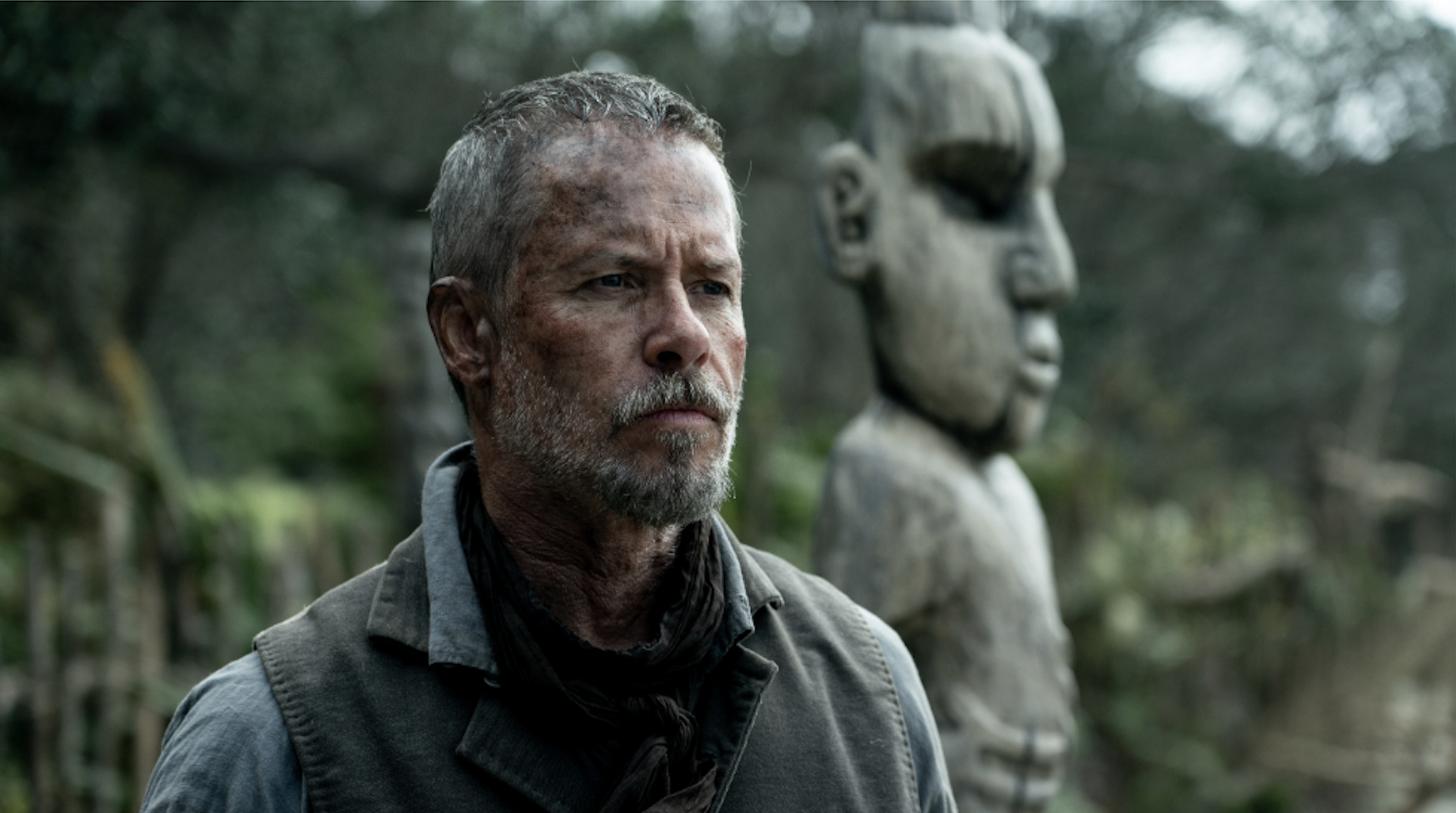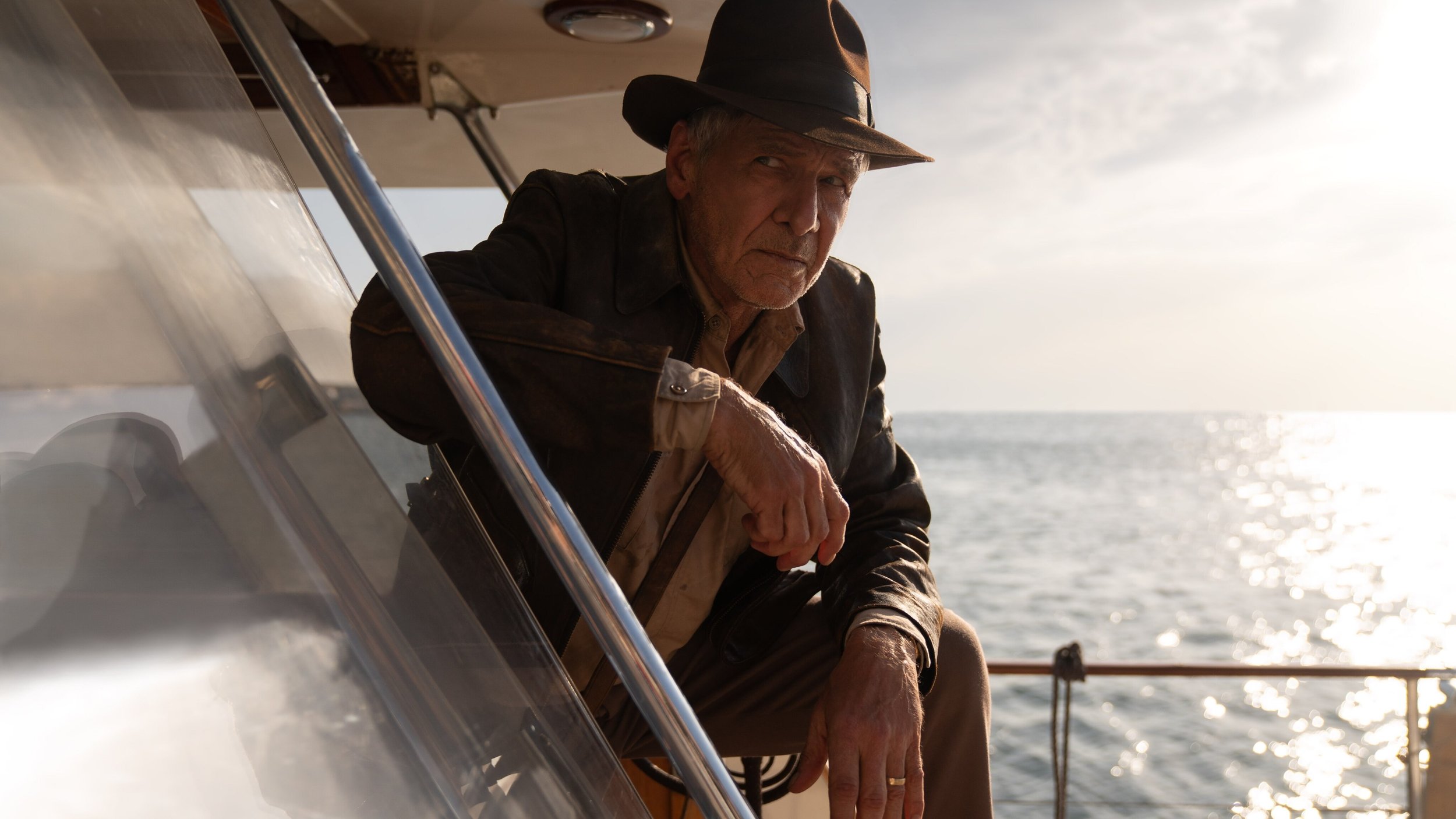(REVIEW) What “white savior” and “white guilt” movies both do is create a fantasy about Christian history that makes us comfortable. In reality, Western Christian history is far more complicated. Filmmakers like Tamahori simply replace one fantasy with another. And, ironically, miss out on a much better movie. “The Convert” has enjoyable pacing and individual performances, but its shallow treatment of its well-worn cliches will make few believers.
Read More(REVIEW) Adventurous, dangerous, fabulous, redemptive and revolting: Medieval travel was all of this and more, as Bale describes, drawing upon a host of period narratives to paint a vivid picture of the experience during an era dominated in the West by pilgrimage. The reasons that pilgrims embarked for places like Canterbury, Santiago de Compostela, Rome and Jerusalem (the holiest and most desirable of all) were manifold.
Read MoreThe movie follows FBI agent Harper Lee who uncovers a series of occult clues that she must solve to catch a serial killer, played by Nicholas Cage). On her way, she discovers her own connection to the serial killer which forces her to confront her own past to hopefully take him down. The film, directed by Oz Perkins and released by Neon, offers up intrigue — but ultimately goes out of its way to glorify evil.
Read More(REVIEW) The documentary “Gothix” tells the story of popular Twitch streamer Vanessa Rosa (known online as “Gothix”) who, having achieved her dream of being a full-time internet personality, loses it all when she states a controversial opinion that makes her the target of a concentrated harassment and boycott campaign by her friends and peers. “Gothix” is a timely documentary about the universality of cancel culture and how faith may hold the answer to navigating it.
Read More(REVIEW) “Ghosted” focuses on how the Frenches lost friends and colleagues alike when they became critics of Donald Trump, the twice-divorced billionaire who won the Republican presidential nomination in 2016 and ascended to the White House.
Read More(REVIEW) Though “Eli Harpo’s Adventure to the Afterlife” author Eric Schlich comes to this tale from a different spiritual trajectory than mine — I’m a former skeptic turned Holy Roller preacher — I found myself caught up in Eli’s story. That’s partly the result of good plotting. By the end of each chapter, I had to see what would happen next.
Read More“Dune: Part Two” has been a massive hit at the box office, making back the first movie’s entire ticket take on its opening weekend and narrowly beating the opening of “Oppenheimer.” And with a Rotten Tomatoes critical and audience score over 90%, many are already calling it one of the best sequels of all time. Here’s what the movie says about religion and those who practice it.
Read More(ANALYSIS) Joseph Henrich, a professor of human evolutionary biology at Harvard University, has written a theory of how the Western mind and cultures became exceptional. He has coined the acronym WEIRD (for Western, educated, industrialized, rich and democratic) to describe the features of this.
Read More(OPINION) In the new film, Jones confesses: "I don't believe in magic, but a few times in my life I've seen things, things I can't explain." But after a life wrestling with sacred mysteries, he concludes: "It's not so much what you believe. It's about how hard you believe it."
Read More(REVIEW) Jimmy Lai wasn’t terribly interested in Christianity for most of his life, but his wife was passionate about it, so he went to church for her. Yet, when he embraced it, he found its ability to give comfort and meaning in his fight against the evil in the world to be something he valued.
Read More(REVIEW) Martin Doblmeier’s documentary, “Sabbath” explores how each of the monotheistic faiths have tackled the restlessness and consistent hurry of modern culture through adopting some variation on what the weekly Sabbath or time of rest looks like in their respective faith cultures.
Read More(REVIEW) “Sound Of Freedom” tries really hard to raise awareness about the very real evils of sex trafficking, but in the process creators forgot to also make a good movie. While the goal is worthy, this is one of the most mind-numbingly boring movies I’ve seen in ages.
Read More(REVIEW) “Shiny Happy People: Duggar Family Secrets” is the latest docuseries from Amazon Prime that focuses on the family and their connections to the nonprofit organization Institute in Basic Life Principles, created by an unordained teacher named Bill Gothard, who was based in the Chicago suburb of Oak Brook, Ill.
Read More(REVIEW) The film “Between Mercy and Me” centers on Hugo and Mercy, a Black man and White women who bond over their love for music, but find themselves drawn into conflict over the racial division in their city that threatens to divide them as well.
Read More(REVIEW) Jelly Roll, a musician with an unusual name, featured in the documentary “Save Me” shows a redemption journey still in progress. The gritty country singer rose to fame with his breakout song “Save Me.” The documentary gives fans a look into a troubled person that has chosen to walk a path of grace through music.
Read More(REVIEW) More books have been written about St. Francis of Assisi than virtually any other historical figure after Jesus Christ. In the Italian town of his birth, he is even the subject of an entire bookstore. As this enthralling exhibition at The National Gallery demonstrates, the revered saint also captured the imaginations of artists who have for generations told his remarkable story without the need for words.
Read More(REVIEW) Few if any 20th century Roman Catholics had a greater impact on Christian spirituality than Thomas Merton, the iconic Trappist monk, mystic and ecumenist. What’s lesser known is the remarkable life of his brother, John Paul, who was almost four years his junior — the subject of “Remembering the Forgotten Merton” William J. Meegan.
Read More(REVIEW) Although it is a supernatural anime, Demon Slayer is set during the shortest era in Japanese history — the Taisho Period (1912-1926). Japanese religion during this time was made up of several different elements, including Shintoism, “the way of the spirits or deities” that was present in the nation before the sixth century, and Buddhism, which began during the sixth century in India.
Read More

















